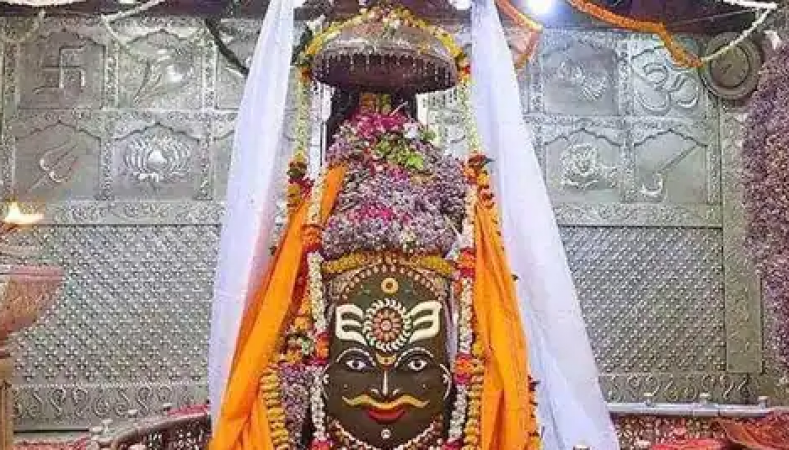
Mahakal Ujjain, also known as the Mahakaleshwar Jyotirlinga Temple, holds significant spiritual and historical importance in Hindu mythology. Located in the ancient city of Ujjain, Madhya Pradesh, India, this sacred temple is dedicated to Lord Shiva, the deity of destruction and transformation. With a rich history dating back centuries, Mahakal Ujjain has remained a revered pilgrimage site attracting devotees from all over the world. This article delves into the captivating history of Mahakal Ujjain and guides you through the rituals and worship practices followed in this magnificent temple.
Ancient History of Mahakal Ujjain:
Mahakal Ujjain's origins can be traced back to ancient times, making it one of the oldest and most esteemed places of worship in India. According to Hindu mythology, Ujjain was known as Avantika in ancient times and was ruled by King Chandrasena, who was an ardent devotee of Lord Shiva. Legend has it that a demon named Dushana wreaked havoc on Avantika, prompting King Chandrasena to seek divine intervention. Pleased by the king's devotion, Lord Shiva emerged as Mahakaleshwar, the eternal ruler of time, to vanquish the demon and protect the city. Thus, the temple came to be known as Mahakaleshwar Jyotirlinga, the abode of the supreme power of Lord Shiva.
Architecture and Significance:
The architecture of Mahakal Ujjain is a blend of Rajput and Maratha styles, exhibiting exquisite craftsmanship. The temple complex comprises three main shrines dedicated to Lord Mahakaleshwar, Goddess Parvati, and Lord Ganesha. The main sanctum houses the Shivalinga, a symbolic representation of Lord Shiva. The temple's spire (shikhar) stands tall at a height of over 150 feet, adorned with intricate carvings and sculptures depicting mythological stories.
Mahakal Ujjain is considered one of the twelve Jyotirlingas, which are believed to be self-manifested lingas of Lord Shiva. This sacred shrine holds immense spiritual significance for devotees, who believe that worshiping here can grant salvation and liberation from the cycle of birth and death.
Rituals and Worship Practices:
Visiting Mahakal Ujjain is a deeply spiritual experience that involves various rituals and customs. Devotees follow a prescribed set of practices while seeking the blessings of Lord Mahakaleshwar. Here is a step-by-step guide to the worship process:
Purification: Before entering the temple, it is customary to take a ritual bath in the holy Shipra River, which is believed to cleanse the body and soul.
Dress Code: Devotees are expected to dress modestly and wear traditional attire while entering the temple premises. Men usually wear dhoti and kurta, while women opt for sarees or salwar-kameez.
Offering Prayers: Upon entering the temple, devotees offer prayers at the main sanctum and perform rituals like abhisheka (sacred bath) to the Shivalinga. The linga is bathed with holy water, milk, ghee, and other sacred substances.
Arti and Mantras: Regular arti (ritual of worship with lamps) is performed to honor Lord Mahakaleshwar. Devotees chant powerful mantras and sing hymns praising the deity.
Bhasma Aarti: The highlight of the worship at Mahakal Ujjain is the Bhasma Aarti, a unique ritual where the Shivalinga is covered with sacred ashes (bhasm). This ritual is performed every morning before the temple opens for devotees.
Prasad: After the worship, devotees receive prasad, which is considered to be a blessed offering from the deity. It usually consists of sacred ash and sweets.
Parikrama: Devotees often perform pradakshin (circumambulation) around the main shrine as an act of reverence. The path around the sanctum is believed to have great spiritual significance.
Mahakal Ujjain stands as a symbol of devotion and spirituality, drawing millions of devotees each year. The temple's ancient history and architectural grandeur make it a must-visit destination for those seeking divine blessings. The rituals and worship practices followed at Mahakal Ujjain offer devotees an opportunity to connect with the divine and experience a profound sense of peace and spirituality. By immersing oneself in the enchanting atmosphere of this holy abode, one can truly grasp the essence of Lord Mahakaleshwar's divine presence.
Know about the roots of the ancient religion of India
Gomateshwara Temple: Monolithic Statues
The Significance of Bells in Temples: Unveiling Their Musical Charm